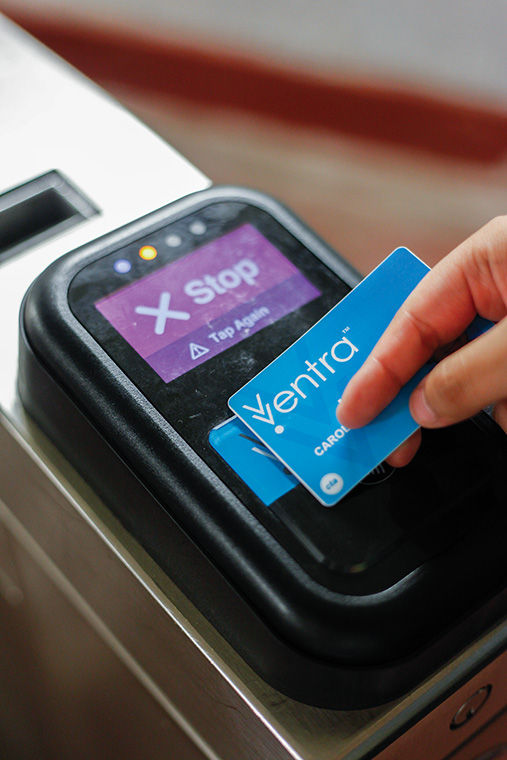CTA cracks down on U-Pass sharing
The Chicago Transit Authority is cracking down on students sharing their U-Passes, confiscating misused cards.
December 1, 2014
In an effort to recoup lost revenue and ensure fair usage, the Chicago Transit Authority is cracking down on students who abuse their U-Passes.
The CTA is actively seeking out students who lend their Ventra U-Passes to non-students, effectively allowing them to ride CTA trains and buses for free. The $130 fee full-time students pay each semester only entitles the student issued the card to unlimited use during the semester and excludes anyone not matching the photo.
Lambrini Lukidis, a spokesman for the CTA, said the CTA has lost approximately $2.2 million in revenue during the last year. Lukidis said the sum was generated from a formula created by CTA officials that assumes riders use the CTA four times per day. Since 2013, there has been a spike in student U-Pass abuse and sharing, she said.
“After we started to do some card verification efforts, we did notice that there were students or people using U-Pass cards and the photo on the U-Pass did not match the person with an ID,” Lukidis said. “We are aware that it’s possible for students, even in a free ride situation, to give their card to let other people use their riding privileges.”
Students found letting others use their Ventra U-Pass will lose the card temporarily and potentially be fined by the Chicago Police Department, Lukidis said.
“The card does get suspended until the next school year unless
the student can present documentation that their card was lost or stolen,” Lukidis said. “To prove the card was lost or stolen [would require]
a police report or some sort of signed affidavit then [the student] would be required to pay $50 as a replacement fee.”
Lukidis said only about a dozen students were fined by the CPD out of nearly 1,800 confiscated cards. The free- or reduced-fare Ventra cards are a privilege and should be treated as such, Lukidis said.
“It is a privilege and you have that because you’re signed up with your school,” Lukidis said. “Regular fare-paying customers are actually paying some of the extra that it costs to provide those unlimited rides. The CTA provides about $100 million annually in free- and reduced-fare rides and it only received about $28 million of the state reimbursement.”
College officials and card distributors did not return requests for comment, as of press time.
Despite the CTA’s loss of revenue, many students across the college’s campus do not find sharing cards to be an issue.
Lorin Jackson, a junior art + design major, said she has never lent out her card but sees no harm in doing so in the future.
“We are all trying to survive, and it’s hard out here, so I wouldn’t mind loaning it if someone needed it,” Jackson said.
Chido Nzvere, a junior journalism major, agreed that people may lend out U-Passes for financial reasons. She said she lent her U-Pass to a friend when there was a glitch in the Ventra system.
“The CTA did lose money, so from that point of view, I do understand,” Nzvere said. “But at the same time, we’re students, you know?”
Tanya Modersitzki, a senior journalism major, said being stopped by the CTA security guards or CPD officers is an inefficient way to address the issue and creates a whole different problem.
“I was at the Harrison [Red Line] stop last week, and when I went through, there were like four cops there, one with a dog and the other asked to see my Ventra,” Modersitzki said. “I was really confused as to what was going on.”
Modersitzki said she questioned if something was wrong at the station she was trying to use and if she should find an alternate route to her destination.
“I didn’t know what [the cops] were doing so I was caught off guard,” Modersitzki said. “I didn’t appreciate [their stopping me], especially with them not telling me what was going on.”








